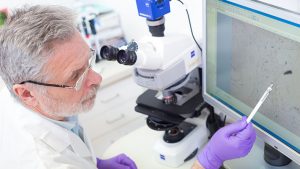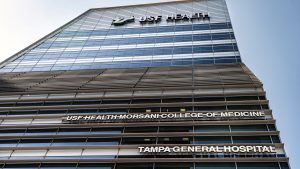The contributions of African-American physicians, nurses, and research scientists to the advancement of medical care must never be taken for granted. There is no way to know how many human lives have been saved or improved through the efforts of these medical trailblazers, who not only shouldered the immense responsibility of learning but also had to overcome societal prejudice.
Their efforts are more than worthy of celebration every day of the year. In acknowledgment of Black History Month, here is a small sampling of some of the brightest scientific and medical minds in American history:
Patricia Bath
Born in 1942 in Harlem, Bath became a pioneer in the treatment and prevention of blindness. She also advocated for eyesight as a basic human right by founding the American Institute for the Prevention of Blindness in 1976.
Bath became the first African-American to complete a residency in ophthalmology in 1973, which led to her appointment two years later as the first woman faculty member at UCLA’s Jules Stein Eye Institute. In 1988, Bath became the first African-American woman physician to receive a medical patent with her Laserphaco Probe, which improved cataract treatment.
Alexa Canady
Canady, a native of Lansing, Michigan, became the first African-American woman neurosurgeon in the U.S. in 1981. She served as chief of neurosurgery at the Children’s Hospital of Michigan from 1987-2001.
Intending to retire when she moved to Florida, Canady instead began practicing part-time after learning that there were no pediatric neurosurgeons based at Pensacola’s Sacred Heart Hospital. In 1993, she was awarded the American Medical Women’s Association President’s Award.
Emmett Chappelle
A renowned NASA biochemist and inventor, Chappelle holds 14 U.S. patents and was inducted into the National Inventors Hall of Fame in 2007 for his work in bioluminescence. This Phoenix native and World War II veteran worked in support of NASA’s manned spaceflight missions, and his research enabled the more accurate detection of bacteria in water.
Rebecca Lee Crumpler
Crumpler, a Delaware native, is widely acknowledged as the first African-American woman physician in the U.S. She was born in 1831 and worked as a nurse in Massachusetts before applying to the New England Female Medical College in 1860.
She graduated in 1864, becoming the first and only African-American graduate of that institution, which closed in 1873. For many years, Crumpler’s status as the first African-American woman to become a physician was not known; that distinction was mistakenly given to Rebecca Cole, who graduated from Women’s Medical College in Pennsylvania three years after Crumpler’s graduation.
Joycelyn Elders
The unapologetically outspoken Elders was appointed the first African-American Surgeon General by President Bill Clinton in 1993 and subsequently asked to resign when the administration took exception to Elders’ outspoken advocacy of early sex education, drug education, and distribution of contraception in schools.
Elders spent many years teaching medicine and was an accomplished pediatric endocrinologist. She remains a voice for progressive ideas in medicine and education.
Dr. Mae C. Jemison
Jemison, a native of Decatur, Alabama, was the first African-American woman admitted to the U.S. astronaut training program. She became the first African-American woman in space on Sep. 12, 1992, as a member of the space shuttle Endeavor’screw.
She earned her M.D. in 1981 from Cornell University Medical College and worked in private practice before becoming a teaching research physician with the Peace Corps in Sierra Leone and Liberia. She was one of 15 candidates chosen out of 2,000 applicants for admission to astronaut training in 1987.
Mary E. Mahoney
Mary Mahoney, a native of Boston, is acknowledged as the first African-American woman to complete nurse’s training. She graduated from nursing school at the New England Hospital for Women and Children in 1879. She was among the first African-American members of the American Nurses Association (ANA) and was a member of the inaugural class of the Nursing Hall of Fame, inducted in 1976.
The Mary Elizabeth Mahoney Award has been bestowed by the ANA since 1952 to individuals who make significant contributions to integration within the nursing profession.
Daniel Hale Williams
The Pennsylvania native was one of the first physicians in the U.S. to perform open-heart surgery in 1893. In 1891, he also founded the Provident Hospital and Training School for Nurses, the first racially integrated nursing and intern program in the U.S.



